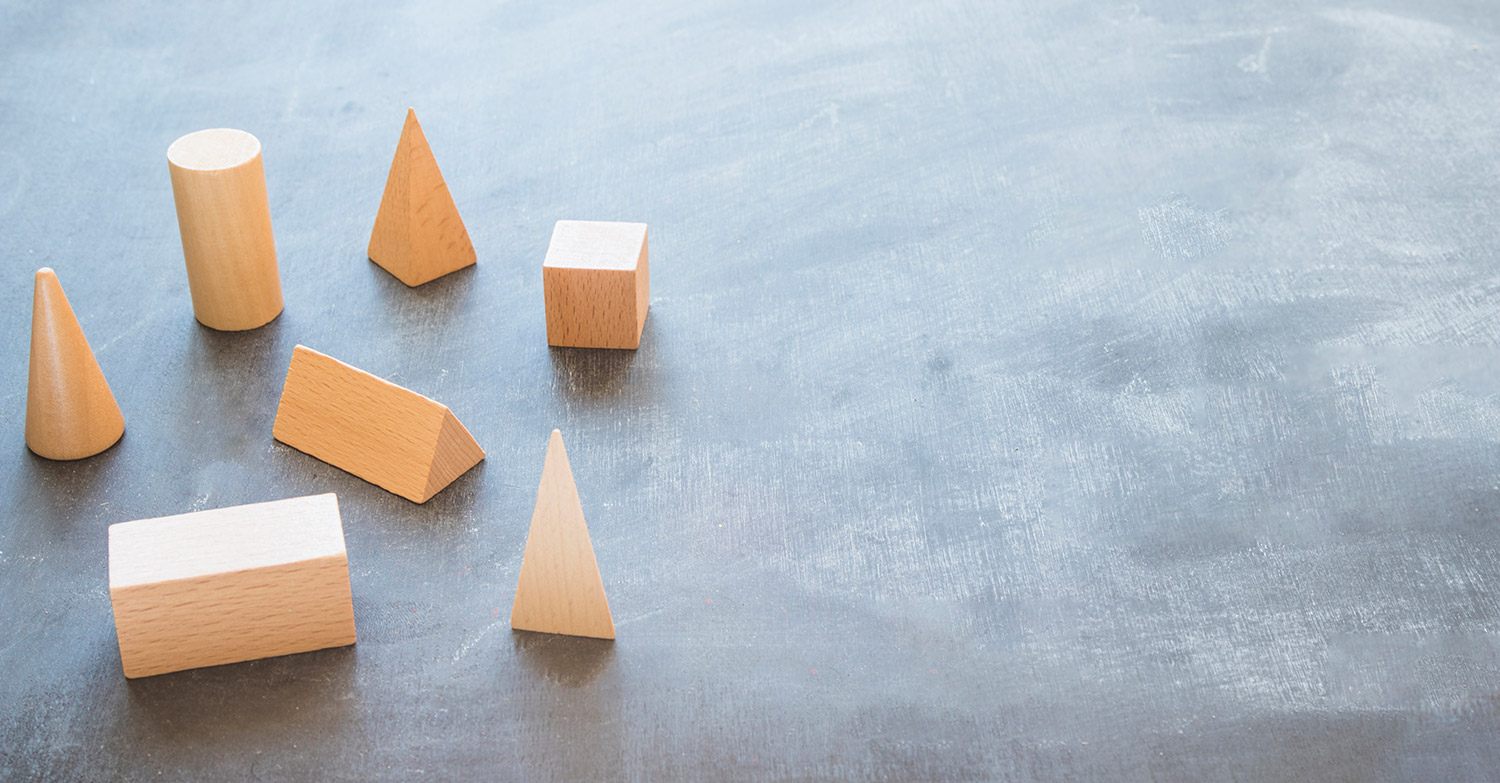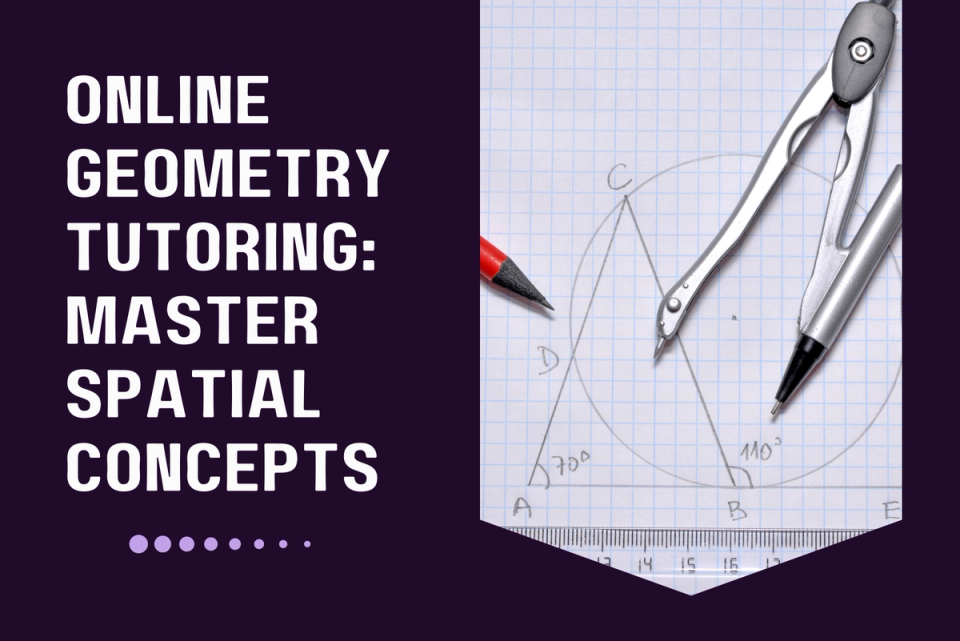How Geometry Lessons Enhance Learning for Different Learning Styles
Wiki Article
Geometry Tutoring: A Tailored Approach to Understanding Ideas and Improving Qualities
Geometry tutoring gives an unique possibility for trainees to enhance their understanding of mathematical principles. With a concentrate on tailored instruction, tutors can attend to details difficulties and adapt to individual learning designs. This targeted approach not only makes clear complex subjects yet likewise promotes self-confidence in pupils. As students navigate the subtleties of geometric concepts, they may find unforeseen advantages that prolong beyond the class. What might these advantages be?Recognizing the Value of Personalized Geometry Tutoring
Lots of pupils struggle with geometry due to its abstract ideas, individualized tutoring can considerably enhance their understanding and confidence. This customized technique allows tutors to customize lessons to fulfill each student's distinct learning style, pace, and specific difficulties (Online Geometry Help). By concentrating on areas where pupils may have problem, tutors can give targeted explanations and practice, making sure that fundamental concepts are solidified prior to progressing to much more complex subjectsCustomized tutoring promotes an encouraging atmosphere where pupils really feel comfy asking inquiries and sharing complication. This motivation can considerably lower anxiety, enabling learners to engage more totally with the product. As an outcome, trainees commonly experience a boost in motivation and self-efficacy. Additionally, customized tutoring can assist bridge the void in between class instruction and personal understanding, inevitably leading to boosted efficiency in geometry. Generally, the significance of customized geometry tutoring hinges on its capability to accommodate individual demands and advertise academic growth.
Trick Concepts Covered in Geometry Tutoring Procedure
Geometry tutoring sessions include a variety of essential ideas that develop the foundation of the topic. Key subjects include the research of factors, lines, angles, and various geometric forms, such as circles, quadrangles, and triangulars. Tutors focus on theorems and residential or commercial properties related to these forms, including harmony, similarity, and the Pythagorean theory.One more essential area of focus is the understanding of dimension, including volume, area, and perimeter estimations. In addition, tutors introduce trainees to coordinate geometry, where they discover to assess the connections in between geometric figures and algebraic formulas.
Transformations such as turnings, reflections, and translations are likewise significant subjects, as they assist pupils visualize adjustments fit and setting. Tutoring sessions commonly cover the concepts of geometric proofs, promoting sensible reasoning and important thinking skills vital for understanding the subject. Collectively, these ideas supply a considerable structure for understanding geometry.
Benefits of One-on-One Tutoring for Geometry Proficiency
While several trainees benefit from team learning settings, individually tutoring provides tailored instruction that greatly boosts geometry proficiency. This individualized method permits tutors to resolve each pupil's special discovering style and speed, ensuring that ideas are thoroughly understood. Customized interest allows pupils to ask concerns freely, cultivating a much deeper comprehension of complicated geometric concepts.In addition, individually tutoring gives prompt comments, allowing trainees to remedy mistakes and strengthen their understanding in real-time. This instantaneous clarification can considerably lower stress and anxiousness typically connected with difficult topics like geometry.
Furthermore, the concentrated setting lessens distractions, enabling pupils to concentrate fully on their discovering purposes. Therefore, one-on-one tutoring not just boosts scholastic performance but likewise aids develop confidence in mathematical capabilities. Inevitably, this customized assistance can result in improved grades and a much more extensive admiration of geometry as a subject.
Just how to Select the Right Geometry Tutor
Exactly how can a trainee pick the most suitable geometry tutor? Initially, it is vital to analyze the tutor's qualifications and experience in mentor geometry. A solid background in maths education or a related field can show efficiency. Next, trainees need to think about the tutor's training design and whether it straightens with their understanding preferences. Some pupils prosper with a structured approach, while others may take advantage of an extra flexible, appealing approach.In addition, assessing evaluations or testimonies from previous students can offer understandings right into the tutor's performance and relationship. Accessibility and place are likewise considerable factors; finding a tutor that can suit the trainee's routine enhances the probability of regular sessions. Ultimately, a test session can help identify compatibility. This initial conference enables trainees to assess the tutor's interaction abilities and capability to explain intricate principles plainly, eventually leading to an extra enlightened decision.
Approaches for Reliable Geometry Discovering
Effective geometry understanding usually integrates aesthetic discovering techniques, which assist students comprehend complex ideas via designs and diagrams. Furthermore, constant practice and application of geometric concepts enhance understanding and retention. By integrating these methods, students can boost their skills and self-confidence in geometry.
Visual Knowing Techniques
Visual discovering strategies act as effective devices for students traversing the intricate world of geometry. These strategies commonly involve making use of representations, versions, and visual aids that make it possible for learners to comprehend complex ideas extra intuitively. Geometric forms can be highlighted through illustrations or digital depictions, enabling pupils to envision connections and residential or commercial properties. In addition, click resources color-coding different elements within a representation can improve understanding and retention. Mind mapping is one more efficient method, helping pupils organize their thoughts and see links in between numerous geometric principles. By special info integrating visual discovering techniques, trainees can foster a deeper understanding of geometry, making abstract ideas more concrete and much easier to adjust. Inevitably, these techniques assist in an even more reliable and interesting understanding experience.Practice and Application
A strong understanding of geometry needs constant practice and application of concepts found out. Engaging in normal analytical workouts improves trainees' capacity to envision and control geometric figures. Tutors advise integrating a variety of problems, from standard forms to much more complex evidence, to solidify understanding. Additionally, trainees ought to apply geometry ideas to real-world situations, such as style or design, to see their importance and utility. Utilizing on-line sources, such as interactive geometry software program, can further enhance the knowing experience. Routine feedback from tutors can identify areas that need improvement, permitting targeted practice. Inevitably, an organized method integrating diverse methods and consistent application fosters mastery and improves general academic efficiency in geometry.Real-Life Applications of Geometry Abilities
Geometry abilities play a necessary role in different real-life applications, especially in areas such as style and design, where spatial thinking is necessary for developing functional structures. Furthermore, design and technology greatly rely upon geometric principles to resolve complex troubles and introduce new remedies - Geometry Lessons. Recognizing these applications can improve recognition for geometry beyond the classroom
Design and Design

Design and Modern technology

Often Asked Concerns
How Much Does Geometry Tutoring Generally Cost?
Geometry tutoring generally sets you back in between $25 and $80 per hour, depending on variables such as the tutor's experience, place, and whether the sessions are performed in-person or on the internet, affecting total prices and ease of access for trainees. - Geometry LessonsWhat Credentials Should I Look for in a Tutor?
One must seek a tutor with a solid math history, relevant training experience, and experience with different learning styles. In addition, qualifications or levels in education or mathematics can boost their reputation and effectiveness in tutoring.Just How Long Do Coaching Sessions Normally Last?
Tutoring sessions generally last in between one to 2 hours, allowing enough time for comprehensive explanation and technique. The period may vary based upon the student's needs, subject intricacy, and tutor's training design.Can Tutoring Accommodate Different Learning Styles?
Yes, tutoring can fit various learning styles by utilizing different training techniques customized to individual demands. This individualized method boosts understanding, retention, and application of principles, ultimately cultivating a much more reliable discovering environment for every pupil.What Materials Are Required for Geometry Tutoring Sessions?
Necessary products for geometry tutoring sessions generally include graph paper, leaders, protractors, textbooks, calculators, and handouts. Additionally, visual aids like representations or designs can boost understanding, satisfying various discovering designs effectively.Geometry tutoring supplies an unique chance for trainees to boost their understanding of mathematical principles. Several students struggle with geometry due to its abstract ideas, individualized tutoring can greatly enhance their understanding and self-confidence. While lots of pupils profit from team knowing atmospheres, individually tutoring supplies tailored instruction that greatly boosts geometry proficiency. How can a pupil select the most suitable geometry tutor? Efficient geometry discovering commonly integrates visual understanding methods, which help pupils realize complicated concepts through diagrams and models.
Report this wiki page